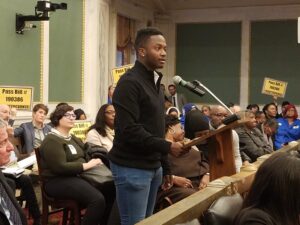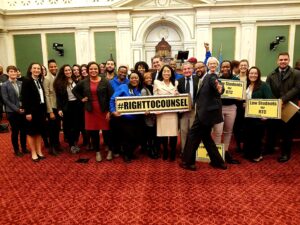- By Javier Zurita, Luke Myers, and Elizabeth Napierkowski,
This pandemic revealed the extent of economic inequities in our society. However, defendants sued in Philadelphia Municipal Court over allegedly unpaid debt have long struggled with an additional hindrance – the issuance of default judgments based on inadequate proof that the money sought is actually owed. Our investigation and report focused on the tens of thousands of consumer-debt actions brought by collection agencies – generally out-of-state debt buyers — each year, against low-income Philadelphians. Most of these defendants do not have legal representation.
Based on our courtroom observations, court dockets, and legal research, we created a checklist intended to help the Philadelphia Municipal Court ensure that in consumer-debt claims brought by collection agencies, default judgments are awarded only when claims have merit. Our proposed checklist itemizes the evidence that the Court should require from plaintiffs before they enter judgment (for example, proof that the plaintiff actually owns the debt; proof of the terms of the contract; and proof of the amount of damages sought). The proposal draws on local and state rules and case law, especially Local Rule 120, which states that Pennsylvania Rules of Evidence apply not only at trials but also before a default judgment can be entered. It is our hope that the Court will utilize the proposed checklist to provide greater due process to defendants in debt cases.

 Xavier and colleagues Julia Sheppard and Sarah Kim have spent the semester researching why so many landlord/tenant cases in Philadelphia result in default judgments — which then lead quickly to eviction.
Xavier and colleagues Julia Sheppard and Sarah Kim have spent the semester researching why so many landlord/tenant cases in Philadelphia result in default judgments — which then lead quickly to eviction.